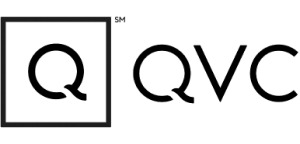This post contains affiliate links. Please see our disclosure policy.
Explore my picks for the top 12 foods that lower cholesterol naturally to improve your health and wellbeing.
When was the last time you thought about your cholesterol? It can be easy to forget about unless you’ve recently been to the doctor. Especially since high cholesterol doesn’t usually come with noticeable symptoms.
Unfortunately, the CDC stipulates that roughly 30% of American women have high cholesterol—dramatically increasing their risk for heart disease, heart attacks, and strokes.
While medication or supplements may be necessary for some situations, making dietary and lifestyle changes is often enough to manage cholesterol naturally.
High cholesterol levels can lead to the buildup of plaque in the arteries, increasing the risk of heart disease and stroke. By consuming foods that lower cholesterol, you can do your body a favor, reduce your risk of heart disease, and improve your overall health.
Here are my top foods that can lower cholesterol naturally. Try incorporating a few into your diet.

Save This Article To Read Later
1. Sweet Potatoes
Sweet potatoes are not only delicious; it turns out they’re a major source of soluble fiber, which is bad cholesterol’s worst nightmare. I’m listing this as number one because I literally eat sweet potatoes every day!
Soluble fiber helps the body excrete cholesterol by binding to bile acids. Sweet potatoes are loaded with soluble fiber, especially the peel—so if you want to maximize its benefit, go ahead and eat the skin, too!
This powerful super food is also listed on the Blue Zones foods list, which highlights the diets of some of the longest living people in the world!
Here are a few sweet potato recipes to try to help lower cholesterol:
2. Oats and Barley
There’s a reason oatmeal is touted as one of the healthiest ways to start your day; it’s been proven that eating oats regularly can lower your LDL (bad cholesterol) by 5.3% in only 6 weeks.
Oats and barley are two of the most effective grains for lowering cholesterol. These grains are abundant sources of soluble fiber that can be an essential aid to achieve low cholesterol levels.
Soluble fiber helps to reduce the risk of plaque buildup in the bloodstream by reducing the absorption of cholesterol in the arterial walls.
In addition to its high soluble fiber content, oats also contain something called beta-glucan, which works to absorb LDL from the blood.
Get creative with your morning oatmeal, the health benefits go way beyond just cholesterol!
Here is a healthy oatmeal recipe to try:
3. Olive Oil
Olive oil is a healthy fat that plays a big part in most Mediterranean diets, keeping your heart healthy with monounsaturated fatty acids (MUFAs), which naturally lower LDL cholesterol.
Make the switch from butter or margarine to olive oil and your cholesterol levels will thank you.
When purchasing olive oil, it’s crucial to choose high-quality, extra-virgin olive oil to reap the maximum health benefits. Extra-virgin olive oil is minimally processed and is rich in health-promoting compounds, making it a better choice than highly processed vegetable oils.
I always stay away from palm oil and canola oils.
As a bonus, healthy fats can also help you naturally lose weight.
4. Eggplant
Eggplant is loaded with fiber, which you’ve now learned is key to reducing LDL levels. Plus, the health benefits of eggplant are pretty impressive, even beyond cholesterol.
They are a great addition to any healthy diet.
Eggplant is a great substitute in many popular recipes you may already love and enjoy. Simply make the swap and enjoy great taste, plus amazing health benefits.
Here is a few eggplant recipe to try:
5. Grapefruit
Studies have shown people can lower their LDL cholesterol by up to 20% by simply adding grapefruit to their diet.
Grapefruit contains antioxidants and fiber, as well as a flavonoid called naringenin, which has been shown to prevent plaque buildup and lower both LDL cholesterol and triglycerides.
As an added bonus, grapefruit is a fat burning food that can increase your metabolism naturally.
6. Salmon and Other Fatty Fishes
If you want to lower your cholesterol naturally, adding fatty fish to your diet is an excellent idea. Salmon, mackerel, and sardines are all ideal sources of omega-3 fats, which are vital for maintaining overall health and well-being.
Again with healthy fats! The Omega-3 fatty acids found in salmon and other fish can boost your HDL levels (good cholesterol) in addition to ward off heart disease and dementia.
To get the most benefit, the American Heart Association recommends eating two 6-ounce servings of fish per week (particularly fatty fish) to help reduce your risk of heart disease and stroke.
Here is a healthy salmon recipe worth trying:
7. Dark Chocolate
Ahh, chocolate. We knew you loved us as much as we loved you! Loaded with antioxidants, dark chocolate increases your HDL (good!) cholesterol levels and keeps blood platelets from sticking together.
Of course, remember everything in moderation.
For the best benefits, stick with organic dark chocolate as an occasional indulgence.
8. Healthy Nuts
If you’re looking for a satisfying snack that won’t compromise your cholesterol levels, almonds and walnuts are the way to go. These nuts are a healthy fat are packed with vital nutrients that can help reduce LDL cholesterol levels.
Eating peanuts, almonds, or walnuts can lower your LDL cholesterol; one study, in particular, found that a handful of walnuts per day can decrease their LDL cholesterol by as much as 10%, all while increasing their HDL, too.
Their high-calorie count means it’s important to keep portion sizes small—around one to one and a half ounces per day—to get the most benefit.
9. Garlic
Garlic is amazing for many reasons. It has immune-boosting properties and adds a burst of flavor to some of our favorite dishes.
But it’s also a great cholesterol-lowering food to stock up on next time you’re at the grocery store. Research shows it can prevent LDL particles from clogging up artery walls.
Better yet, it’s easy (and almost necessary!) to incorporate into a lot of recipes like this homemade hummus.
Try a few fresh cloves per day!
10. Avocado
If you’re looking for a delicious and nutritious way to lower your cholesterol levels, look no further than the avocado. Avocados are a superfood packed with essential nutrients, such as potassium, magnesium, fiber and a healthy type of fat.
The monounsaturated fats found in avocados can help lower LDL (bad) cholesterol levels, which reduces the risk of heart disease.
Incorporating avocado into your meals is easy – add it to your salads, smoothies or even use it as a spread on toast. Just be mindful of portion sizes, as avocados are high in calories.
A quarter or half of an avocado is a perfect serving size, depending on your nutritional needs.
Here is an avocado recipe you might enjoy:
11. Blueberries
Blueberries, often referred to as a superfood, are packed with anti-inflammatory properties and antioxidants that help fight cell damage caused by free radicals. These antioxidants have been shown to lower LDL cholesterol levels, reducing the likelihood of heart disease.
Blueberries are an excellent source of soluble fiber, which binds to and helps eliminate cholesterol from the body. Eating just one cup (148 grams) of blueberries a day can contribute to healthy cholesterol levels.
If you’re looking for a delicious way to incorporate blueberries into your diet, try adding them to your morning yogurt, oatmeal, or smoothie. They make a fantastic topping for pancakes and waffles, and can help your sweet tooth cravings without any artificial added sugar.
These are a few blueberry recipes worth trying:
12. Beans and Legumes
Beans and legumes such as lentils, chickpeas, and black beans are excellent sources of soluble fiber, making them an effective weapon against high cholesterol. The soluble fiber in these fiber-packed foods binds to cholesterol and facilitates its elimination from the body.
Adding beans and legumes to your diet can help to improve cholesterol profiles, promote heart health, and increase feelings of fullness. The high fiber content of these foods means that they can help to stabilize blood sugar levels and regulate digestion.
Other examples of beans and legumes that can be added to your diet include kidney beans, navy beans, and pinto beans. With all of these options, it’s easy to incorporate these cholesterol fighters into your meals.
They are also a blue zone food, which means some of the oldest populations in the world eat them!
Here are a few bean and legume recipes to try:
Lowering cholesterol levels is crucial for maintaining a healthy heart and reducing the risk of heart disease and stroke.
By incorporating these nine heart-healthy foods into your diet, you can naturally lower your cholesterol levels and take positive steps towards improving your overall well-being.
If you have any questions about how to incorporate these healthy foods into your diet, I recommend reaching out to your preferred healthcare provider or dietitian for support.
Remember, a balanced and varied diet rich in fruits, vegetables, and whole grains, combined with regular exercise, is essential for optimal heart health. So, make sure to prioritize heart-healthy habits in your daily routine to keep your cholesterol levels in check.



Hi Chris! I love your webpage. I would like to ask you how much evidence there is about the truth behind trophology or food combining. What does science say?
Thank You!
Hi Dan – I don’t follow or really advocate for food combining… It seems too complicated to me and I think healthy eating can be accomplished a lot more simply 🙂
Hi, thank you really help me to check my diet, as my ldl is high
Thanks for the insight, iam going to put it into practice